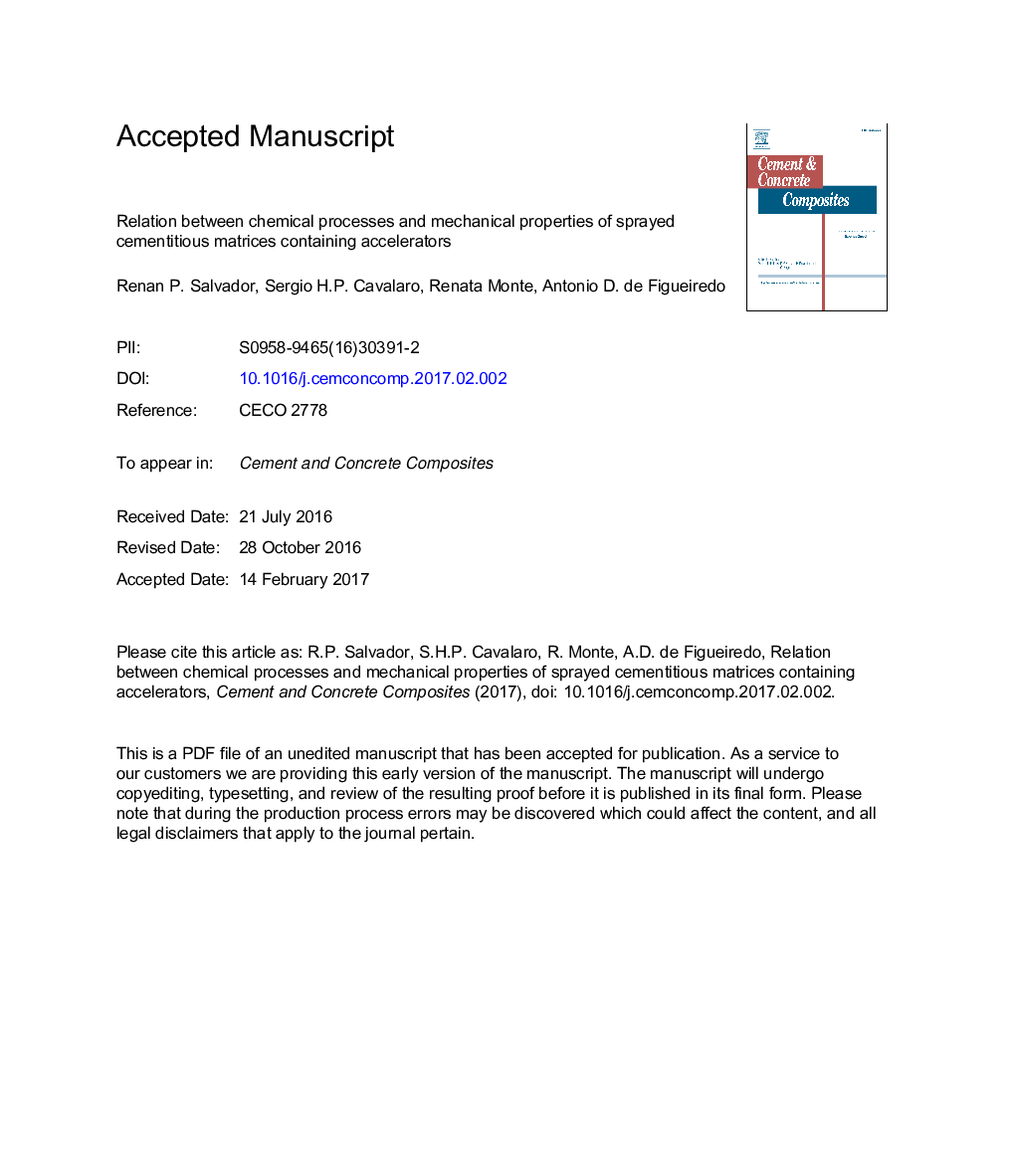| Article ID | Journal | Published Year | Pages | File Type |
|---|---|---|---|---|
| 5436900 | Cement and Concrete Composites | 2017 | 71 Pages |
Abstract
Cement and accelerator compatibility is critical for achieving proper mechanical performance in sprayed matrices. Few studies in the literature focus on establishing relationships between accelerated chemical reactions and the resulting mechanical properties of these matrices. The objective of this study is to evaluate the correlation between the chemical processes occurring in accelerated matrices and their mechanical strength development from a quantitative standpoint, elucidating the main mechanisms governing their performance. Hydration kinetics were analyzed by XRD and isothermal calorimetry, while mechanical properties were evaluated by needle and pin penetration resistance and compressive strength of extracted cores. Results showed the influence of the accelerated hydration and the evolution of phase composition on the development of mechanical properties of the matrices. Based on an extensive statistical analysis, multivariate linear regressions were established between the mechanical strength of sprayed mortars and the main chemical parameters influencing its development at early and late ages.
Related Topics
Physical Sciences and Engineering
Engineering
Industrial and Manufacturing Engineering
Authors
Renan P. Salvador, Sergio H.P. Cavalaro, Renata Monte, Antonio D. de Figueiredo,
